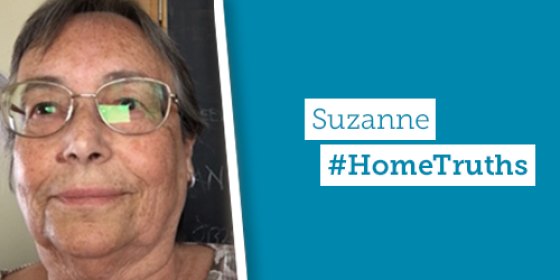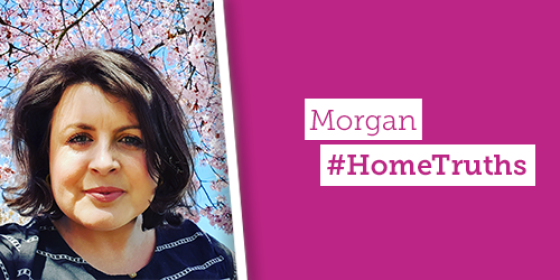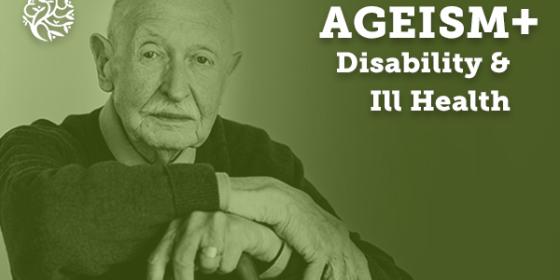 Home Truths: Supporting my community
Home Truths: Supporting my community
Self-isolation hits me particularly hard
The past three weeks of self-isolation have hit me particularly hard, as I have really missed my voluntary work. Life is normally very busy. I am an active member of Milton Keynes older people’s forum, as well as running groups for people who are visually impaired including ballroom dancing, tai chi, and how to use technology. I also campaign alongside charities on issues I am passionate about and sit on various disability groups. But all of this has had to be put on hold while I stay at home to protect myself and others. I know for many of us, across all generations, the current situation is having an impact.
"Being a 'people person', I love working with people from all walks of life and serving my fellow visually impaired community."
During the outbreak, I count my blessings that technology is helping me to keep connected with family and friends, and keep abreast of the news. I am convinced that digital inclusion of all age groups is a necessity in the modern world particularly during this difficult time of social distancing, and especially for the visually impaired.
I have to admit that I am not a technology savvy person, nor do I own lots of gadgets; but in my efforts to help people learn to use a smart phone, I am learning to use it myself too. Apps like WhatsApp connects me with my international pen-friends for free. When I want to see them or their families, I talk to them on FaceTime on my tablet where I can see a magnified picture. I download books and magazines on my phone and listen to them while doing the chores around the house. My phone enables me to text a quick message to family and friends who are caught up in coronavirus lock down and cheer them up.
Though many of us can learn to use technology as we age, I know that digital exclusion is more poignant among the older generation who can feel intimidated by technology and find it hard to get to grips with. What makes things even harder is that one in five people over the age of 75 have sight loss, and I know from experience that their learning opportunities are very limited. I have had several blind and partially sighted older people tell me how they would love to be computer literate, but do not know where to find help, or they cannot summon up the confidence to seek help. Unlike younger people who have grown up with mobile phones and are comfortable learning from one another, that isn’t always the case for people who are less mobile or isolated. So, I think a different approach is needed to enable more people to embrace the opportunities technology has to offer.
I understand there will be some people who do not want to use digital technology, but for those who want to try, they need tailored help. Personally I would like more organisations to consider the varying abilities and needs of different groups of older people when providing training and guidance. As a visually impaired person I have found it almost impossible to find training that I could access and benefit from, for example videos are not much use and many IT teachers don't know how to support someone who has sensory loss, for example is blind or deaf. This is what led me to set up an IT group specifically for blind and partially sighted people in my local area. We now know about software that can help visually impaired people overcome some of the barriers, but more IT trainers need to be aware of it, and confident showing people how to make the best of it.
If you’d like to support Independent Age to campaign for change to support people in later life, you can join our campaign network by signing up to receive our emails.
 Blogs | Home Truths - Raising your voices
Blogs | Home Truths - Raising your voices
 Disabled people deserve kindness and consideration
Disabled people deserve kindness and consideration
 How technology is helping people stay safe and well at home
How technology is helping people stay safe and well at home